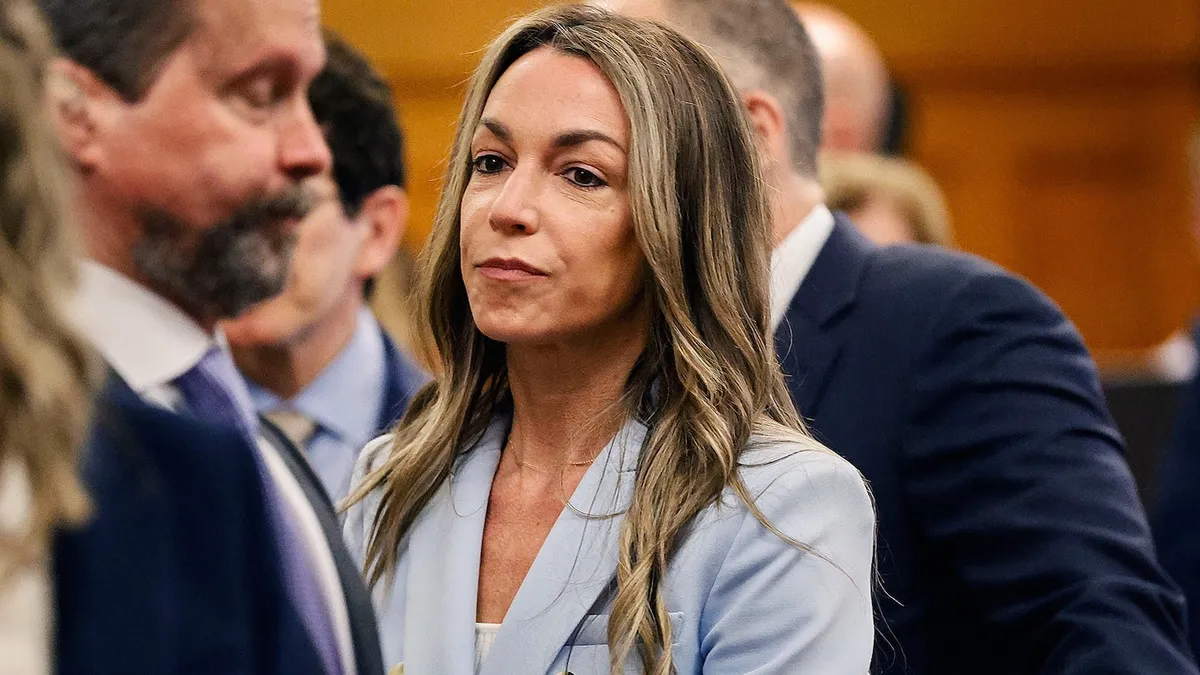
A Massachusetts jury has found Karen Read not guilty of murdering her boyfriend, Boston police officer John O'Keefe, in a highly publicized case that has drawn significant media attention. This verdict comes nearly a year after Read's first trial ended in a mistrial. The jury acquitted her of serious charges, including second-degree murder, manslaughter, and leaving the scene of an accident resulting in death. However, she was found guilty of operating under the influence of liquor, leading to a one-year probation sentence—standard for a first-time offense.
As the verdict was announced, cheers erupted from a group of supporters gathered outside the courthouse. Read, visibly emotional, embraced her legal team and shed tears of relief. The jury began its deliberations on June 13 in Norfolk County, ultimately reaching a verdict on Wednesday afternoon.
Prosecutors alleged that Read struck O'Keefe with her vehicle outside the Canton home of fellow police officer Brian Albert after a night of heavy drinking in January 2022. They claimed that she then left him to die in the snow during a severe blizzard. In contrast, the defense argued that Read's vehicle did not hit O'Keefe. Instead, they contended that he was attacked by a dog and beaten by individuals present at the house before being discarded in the snow.
Throughout the trial, Read maintained her innocence, pleading not guilty to all charges. After the verdict, she expressed her gratitude to her supporters for their unwavering financial and emotional backing over the past four years. “No one has fought harder for justice than John O'Keefe than I have,” she stated, emphasizing her commitment to the case.
In the aftermath of the verdict, several witnesses who testified against Read expressed their dismay, calling the outcome a “devastating miscarriage of justice.” Members of the Albert and McCabe families released a statement mourning the verdict and expressing sympathy for the O'Keefe family. They alleged that the prosecution was tainted by lies and conspiracy theories propagated by Read, her defense team, and segments of the media.
During the jury's deliberations, they posed several questions to the judge, including inquiries about the implications of finding not guilty on some charges but unable to reach a consensus on others. The judge, Beverly Cannone, informed the jury that she could not respond to these theoretical questions, maintaining the integrity of the deliberation process.
This retrial marks a significant chapter in Read's legal battles. Her initial trial ended in a mistrial in July 2022 when the jury could not reach a unanimous verdict. According to her attorneys, at least four jurors from that trial confirmed that Read was found not guilty of second-degree murder and leaving a scene of personal injury and death, although they could not agree on the charge of manslaughter.
Following the mistrial, Read's attorneys filed multiple appeals, including reaching out to the U.S. Supreme Court, arguing against retrial on counts that the jury had seemingly agreed on, citing potential double jeopardy. Each of these appeals was denied. During her second trial, Read's defense team made two motions for a mistrial, both rejected by the judge. Notably, Read chose not to testify in her own defense, stating, “The jury has heard my interview clips. They've heard my voice.”
In a strategic move, Read added Victoria George, an alternate juror from her first trial who is also a licensed civil attorney in Massachusetts, to her legal team for the retrial. The acquittal in this case raises questions about the complexities of the legal system and the challenges faced by those involved in high-profile trials.